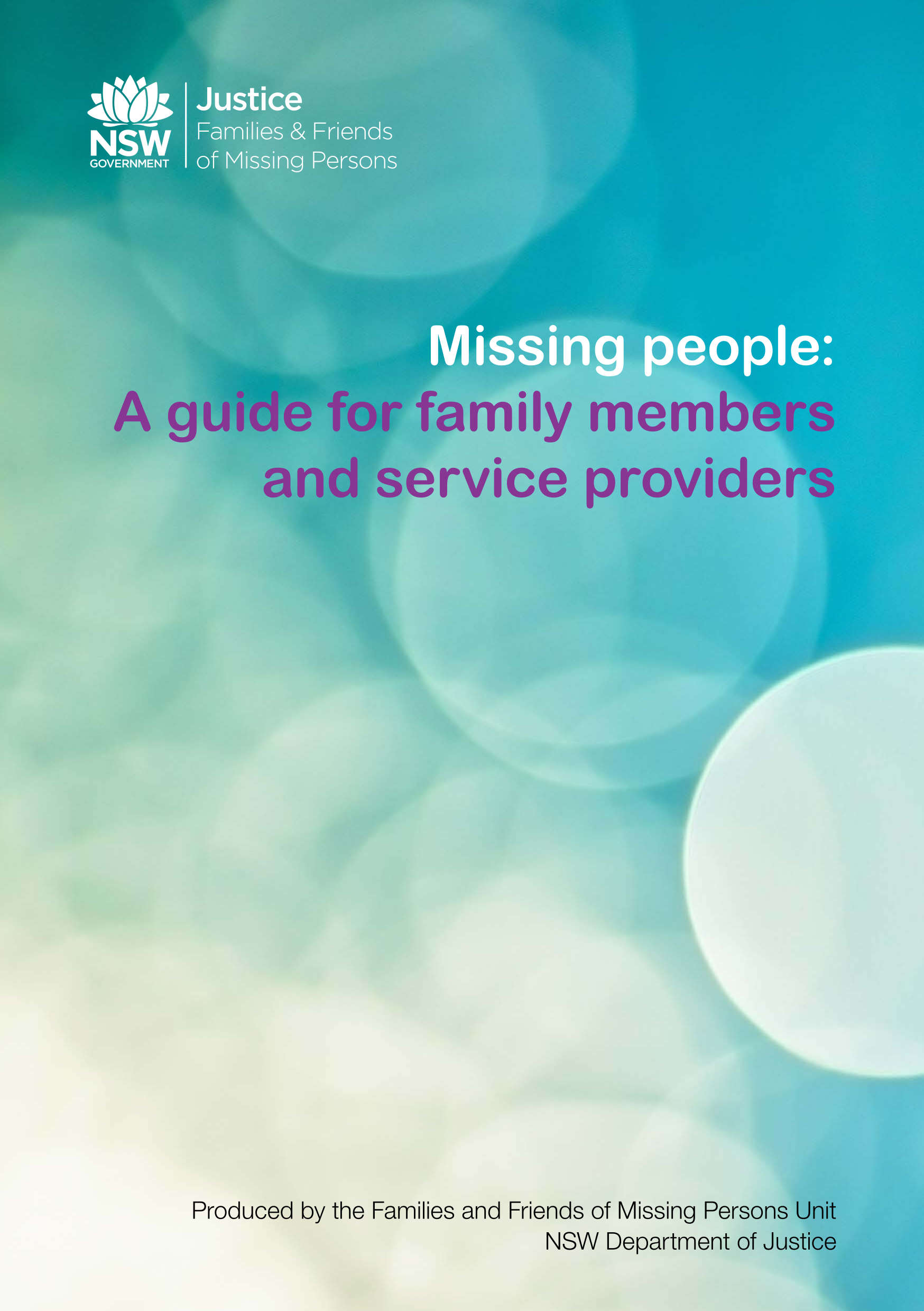This fact sheet was created by the Families and Friends of Missing Persons (FFMPU) in New South Wales, Australia. The FFMPU is a unique service that provides information, referral and support service for families and friends of the missing. The FFMPU has granted permission to CCIMA to reproduce and post this work.
In 2005 the Families and Friends of Missing Persons Unit (FFMPU) held a roundtable for siblings of missing persons to hear about their unique experiences. Whilst each person’s story was unique, many participants identified similarities, revealing that most people go through ‘stages’ in coping with a sibling going missing. These stages are loosely defined with the length of the stages varying widely between individuals.
Shock and disbelief
An initial stage of intense shock and disbelief affected siblings in the early weeks and months of their sibling’s disappearance. They became focused on details that might help them find their sibling, such as their last known movements, what they were wearing and doing prior to disappearing. Participants reported trying everything to locate their sibling and following up every possible lead. All tried to maintain their lives as normally as possible, in the midst of a totally abnormal situation, in case their sibling tried to contact them away from home.
Siblings spoke of the effects that this early shock and disbelief had on their lives. A common phenomenon was that of ‘seeing’ their sibling – for example, whilst walking down the street, thinking they had seen them only to realize it was a stranger who perhaps resembled their sibling, or the sighting was purely imaginary. This was found by all to be a distressing experience.
There was also disappointment and disillusionment with the services that were expected to help when their sibling was not found.
A common issue that all participants found difficult was that of having to provide support and consolation to other people. Many siblings felt that their feelings and needs went unrecognized and people focused on their parents’ wellbeing. This left them feeling unsupported and their feelings unrecognized.
Later stages
Subsequent stages were less easy to define than the shock of the early stages of the sibling going missing. Participants talked of a slow realisation that they were powerless to bring their sibling back. With this came a shift in focus, from the needs of their family, particularly their parents, to their own needs. People became tired of having to look after others and began to feel the need to look after themselves and refocus on their own lives.
In the long-term
Some participants’ siblings had gone missing a number of years ago and they were able to talk about how their experience had changed over long periods of time. There was an enduring sadness at the loss of their sibling but that sadness was less acute and debilitating. They still had frequent thoughts of the missing sibling and still felt longing for them but had started to come to terms with the prospect of not seeing them again and perhaps never knowing what had happened to them. There was a feeling that ‘life had to go on’ and a beginning of reinvesting themselves in life again. Several people spoke of going travelling as a response to the pressure they felt and the need to ‘escape’. Travelling tended to raise issues for their parents and themselves about the possibility of them going missing too. When people returned from travelling they found that they had changed in many ways, more than the rest of their family, who seemed to still be ‘stuck’ in the same place.
What might help when your sibling is missing for a long time
- Recognizing that unresolved loss is a long-term process which changes over time. Everyone copes with their loss in their own way and there are no rights or wrongs.
- Learning to cope with ‘triggers’ that may cause acute unresolved loss to resurface at times. These might include things like seeing someone is the street that reminds you of your sibling, hearing a song that reminds you of them, seeing reports of other missing persons on the TV news etc. These triggers may cause temporary setbacks and bring up some of the feelings you had in the early days of your sibling going missing.
- Anticipate difficult times such as your sibling’s birthday, Christmas, etc., when their absence may seem all the more painful. Rituals may be helpful at these times, as an acknowledgement and tribute to the missing person. It is usually better to openly acknowledge feelings than try to bury or ignore them.
- You may wish to hold a memorial for your sibling. When and how to do this will be a very individual family decision.
- You may find that counselling is helpful if you find that your unresolved loss and other feelings are beginning to affect your life. This is true no matter how long it has been since your sibling’s disappearance.
- Make sure you take time for yourself and ask for help if you need it.
Further information
For further information about the Report on the Roundtable for Siblings of Missing Persons or other material relevant to the missing persons experience, please visit www.missingpersons.justice.nsw.gov.au.


